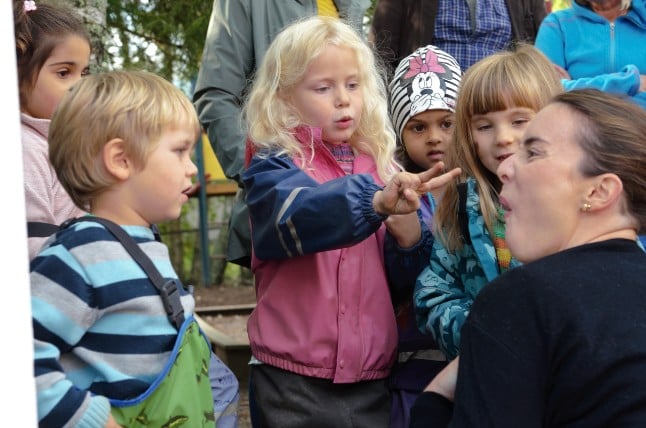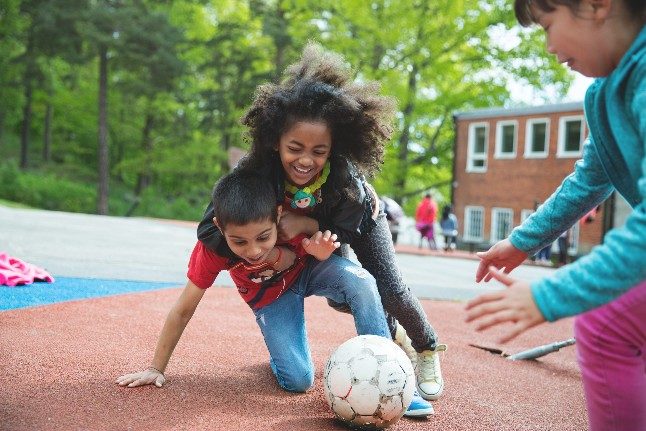- Norway extends coronavirus lockdown until after Easter
- How is Norway's school and kindergarten shutdown going?
- Norway shuts all schools and universities to fight coronavirus pandemic
SCHOOLS
Norway to open schools and daycare to ‘vulnerable children’
Norway's government has called on local authorities who have closed schools and kindergartens due to the coronavirus lockdown to make exceptions for "vulnerable children and youth".
Published: 25 March 2020 18:23 CET

These kindergarten children are not to our knowledge classed as 'vulnerable'. Photo: Stiftelsen Kanvas
In a press release issued on Wednesday, the country's education minister Guri Melby called on municipalities to set aside “infection prevention considerations” for the most needy children.
“Many schoolchildren and pre-schoolers have lost a safe space now that schools and kindergartens are closed,” Melby said.
“That is why it is important that we give these children an offer where they can meet safe and good adults. Families do not need to have major, serious problems in order to get a place in a school or kindergarten for their children in the demanding situation many are facing now.”
READ ALSO:
The statement marks the first sign of a relaxation of Norway's coronavirus lockdown, which closed schools and kindergartens for all children apart from those of socially critical workers, such as those in the health services, public transport or police.
Kjell Ingolf Ropstad, the country's minister for families and children, said that there was a long list of different categories of children who should be given an exception to the school closures.
“It might be children with illnesses or special needs. It might be families who have problems with alcohol, drugs or poor mental health. It might be parents with a high level of conflict,” he said in the press release. “Or it could be children who grew up in families with poor finances or who lack social networks.”
Ropstad called on schools and kindergartens to contact parents of children who might be in need of support and offer to find places for their children.
Url copied to clipboard!


 Please whitelist us to continue reading.
Please whitelist us to continue reading.